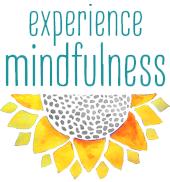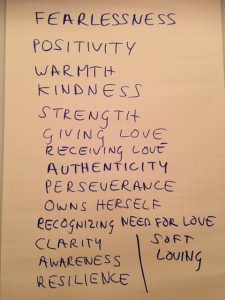“Learning to embrace yourself and your imperfections gives you the resilience needed to thrive”
In my work of guiding people in their mindfulness journey over the last years, I’ve noticed just how much harsh self-talk, judgment and self-doubt many people can engage in. And I can totally relate to this, in the past, I didn’t treat myself kind for so many years. We can undermine ourselves in so many ways. Especially when things get tough, instead of treating ourselves nice we often add a layer of suffering by shame, self-blame and feelings of inadequacy. There are many reasons for this and I won’t delve into the causes here. But the good news and most relevant right now is that with awareness and compassion practices we can shift things around. Self-compassion is so powerful and transformative. Self-compassion significantly helps reduce anxiety and depression and enhance overall well-being and confidence.
I believe self-compassion, the ability to treat yourself the way you would a good friend who is having a hard time, is a key to healing old and present wounds (which are connected) and breaking away from unhelpful patterns, usually variations of those that involve turning against ourselves be it generally or when things go wrong. When we heal the relationship with ourselves, we can heal our relationship with others, our environment, the world. Self-compassion is NOT selfish but the foundation to being more compassionate to others without depleting ourselves in the process. It actually starts with ourselves and when our own cup is full we can gradually extend our compassion from inside out.
Please join me for one of my upcoming self-compassion workshop series and learn tools to increase your self-compassion.
For more information (including guided practices ) about self-compassion, check out www.self-compassion.org
For inspiration about self-compassion please have a look at this TedTalk from Kristin Neff, co-founder of the Mindful Self-Compassion Program together with Chris Germer.

